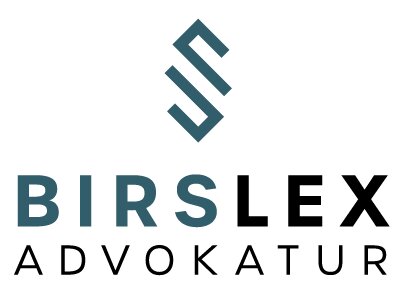Best Adoption Lawyers in Munchenstein
Share your needs with us, get contacted by law firms.
Free. Takes 2 min.
Free Guide to Hiring a Family Lawyer
List of the best lawyers in Munchenstein, Switzerland
About Adoption Law in Munchenstein, Switzerland
Adoption in Munchenstein is governed by Swiss federal law, primarily the Swiss Civil Code, and administered locally by the authorities of the Canton of Basel-Landschaft. The core principle is the best interests of the child. An adoption creates a full parent-child relationship with the same rights and duties as for a biological child. Residents of Munchenstein work with cantonal services for assessments, approvals, and court proceedings. Depending on the case, adoption may be domestic, stepchild adoption, or intercountry adoption under the Hague Convention.
Why You May Need a Lawyer
You may need a lawyer if you are navigating complex eligibility questions, such as age requirements, relationship status, or residence status. Legal advice helps you understand how Swiss and cantonal rules apply to your specific family situation.
Lawyers assist with stepchild adoptions where consent from a non-custodial parent is disputed, where parental rights must be clarified, or where there is a history of limited contact or custody orders.
Intercountry adoptions involve multiple jurisdictions, the Hague Convention, pre-approvals, and accredited bodies. A lawyer can help ensure each step is compliant and that documents are properly authenticated and translated.
When there are sensitive facts such as prior guardianship, foster placements, or child protection measures, counsel can coordinate with the Child and Adult Protection Authority and represent you before the competent court.
If consent issues arise or if there are appeals, a lawyer can represent your interests in negotiations and court, helping to avoid delays and procedural mistakes.
Adoptive parents often benefit from legal guidance on post-adoption matters, such as name changes, citizenship and residence rights, parental leave, and access to records concerning the child’s origins.
Local Laws Overview
Eligibility and relationship status - Swiss law allows married couples to adopt jointly. Following changes to Swiss family law, same-sex married couples can adopt jointly. Single persons may adopt in their own name. For joint adoption, a stable shared household and a minimum duration of the relationship are required by law and practice.
Age and age difference - As a rule, an adoptive parent must be at least 28 years old. Authorities apply an age-difference guideline between parent and child, typically at least 16 years and not usually more than 45 years, with some flexibility based on the best interests of the child.
Best interests and suitability review - Every adoption requires a thorough assessment of the prospective parent or parents. The cantonal authority arranges a home study that covers health, finances, housing, criminal record, motivation, parenting capacity, and social environment.
Consent - Birth parents must consent to an adoption unless consent is legally unnecessary due to specific circumstances provided in the law. There is a statutory waiting period after birth before a mother’s consent is valid. Any consent must be informed and free of undue pressure.
Placement and probation - Before the court can grant the adoption, the child usually lives with the prospective parents for a probationary period, commonly at least one year, under supervision. Reports are submitted to the competent authority and court during this time.
Decision-making bodies - In Basel-Landschaft, the Child and Adult Protection Authority KESB handles assessments, permissions, and oversight of placements. The adoption itself is granted by the competent civil court in the canton. Civil status offices record the adoption in the Swiss civil register.
Stepchild adoption - A spouse can adopt the other spouse’s child if conditions are met, including the child’s consent when of sufficient age and maturity, and subject to the best interests of the child. The rights of the other legal parent must be considered.
Intercountry adoption - Switzerland applies the Hague Convention. Intercountry adoptions must go through the Swiss Central Authority at the Federal Office of Justice and the designated cantonal authority. Private or independent placements are not permitted. Pre-approval and cooperation with accredited bodies are mandatory.
Legal effects - Adoption severs the legal ties with the birth family and creates full filiation with the adoptive parent or parents. The child usually takes the family name of the adoptive family. Questions of citizenship and residence are determined by nationality laws. Swiss children maintain or acquire rights accordingly.
Right to know origins - Adoptees have a right, under Swiss law, to access information about their origins. As an adult, an adoptee may request identifying information from the authorities. Younger adoptees may access non-identifying information, with additional access possible if it serves their welfare.
Frequently Asked Questions
Who is responsible for adoption matters if I live in Munchenstein
Residents of Munchenstein fall under the jurisdiction of the Canton of Basel-Landschaft. The Child and Adult Protection Authority KESB manages assessments and placements. The competent civil court in Basel-Landschaft issues adoption orders. Intercountry adoption is coordinated with the Federal Office of Justice as the Swiss Central Authority.
Can single people adopt in Switzerland
Yes. Single applicants can adopt if they meet the legal requirements and pass suitability assessments. The same best-interests standard applies. Practical considerations like support networks and caregiving plans are closely reviewed.
Can same-sex couples adopt jointly
Yes, if they are married. Following changes to Swiss law on marriage, same-sex married couples can adopt jointly under the same conditions as opposite-sex married couples.
What are the typical age requirements
An adoptive parent is generally expected to be at least 28 years old. Authorities also apply an age-difference guideline, usually at least 16 years older than the child and not more than 45 years older, with room for exceptions if the child’s best interests are served.
How long does the adoption process take
Timeframes vary. The home study and approvals can take several months. The probationary cohabitation period is typically at least one year. Court scheduling and document processing add time. Intercountry cases often take longer due to foreign procedures and document authentication.
Do birth parents have to consent
In most cases, yes. Swiss law requires valid, informed consent from the legal parents, subject to a mandatory waiting period after birth for the mother. The law provides limited situations where consent may not be required, for example where parental responsibilities have been removed by a court.
What is stepchild adoption and how is it handled
Stepchild adoption occurs when a spouse adopts the other spouse’s child. The KESB assesses the family situation, the child’s relationship with each parent, and the necessity of consent from the other legal parent. The child’s wishes are considered if sufficiently mature. The court makes the final decision based on the child’s best interests.
Are private or direct adoptions allowed
No. Switzerland requires that placements occur through the competent authorities and, for intercountry adoptions, through accredited bodies. Private arrangements and direct placements are not permitted.
Will the child’s name and legal ties change
Yes. A full adoption creates a new legal parent-child relationship and generally entails the child taking the adoptive family’s name. Legal ties to the birth family are severed, and inheritance and parental authority shift to the adoptive parent or parents.
Can an adoptee access information about their origins
Yes. An adult adoptee can request identifying information about birth parents from the authorities. Before adulthood, non-identifying information may be provided, and additional access is possible if it serves the adoptee’s welfare.
Additional Resources
Child and Adult Protection Authority KESB Basel-Landschaft - The cantonal authority that assesses adoption suitability, oversees placements, and prepares reports for the court.
Civil Court of the Canton of Basel-Landschaft - The court that issues adoption orders based on KESB reports and the legal criteria.
Civil Status Office Basel-Landschaft - Responsible for recording adoptions in the civil status register and handling name entries and related civil documentation.
Federal Office of Justice - Central Authority for Intercountry Adoption - Coordinates intercountry adoptions under the Hague Convention and works with cantonal authorities and accredited bodies.
Accredited Adoption and Child Placement Services - Recognized organizations that conduct home studies, provide preparation courses, and support domestic and intercountry placements in coordination with KESB.
Family and Youth Counseling Services in Basel-Landschaft - Public and non-profit services that support adoptive families and adoptees, including pre- and post-adoption counseling.
Next Steps
Clarify your goals - Decide whether you are pursuing domestic, stepchild, or intercountry adoption. Consider the age range and needs you are ready to support and your family’s capacity to meet them.
Seek initial advice - Contact KESB Basel-Landschaft or an accredited placement service for an orientation. A short consultation with a family law lawyer can help you map the steps specific to your situation.
Prepare documents - Gather identification, residence permits if applicable, marriage certificates, health reports, criminal record extracts, income and housing documentation, and references. Your authority or agency will provide a checklist.
Complete the home study - Participate in interviews, home visits, and preparation courses. Be transparent about your history and parenting plans. Address any issues raised by the assessor promptly.
Obtain necessary approvals - For intercountry adoption, secure pre-approval from the Swiss Central Authority and comply with the sending country’s requirements. Ensure any translations and authentications are completed correctly.
Probationary placement - Once a child is placed, engage fully with supervision and support services. Keep records and cooperate with reporting obligations during the probationary period.
Court application - Work with your lawyer or agency to file the application for the adoption order with the competent civil court in Basel-Landschaft. Respond to any requests for additional information.
Registration and post-adoption support - After the order, ensure the adoption is recorded by the civil status office. Address name and documentation changes. Consider ongoing counseling or parent training to support family adjustment.
If you face obstacles such as contested consent, complex international steps, or special needs considerations, consult a lawyer experienced in adoption law in Basel-Landschaft. Early legal guidance often shortens timelines and reduces stress while keeping the process compliant and child-centered.
This guide provides general information only and is not a substitute for legal advice tailored to your circumstances.
Lawzana helps you find the best lawyers and law firms in Munchenstein through a curated and pre-screened list of qualified legal professionals. Our platform offers rankings and detailed profiles of attorneys and law firms, allowing you to compare based on practice areas, including Adoption, experience, and client feedback.
Each profile includes a description of the firm's areas of practice, client reviews, team members and partners, year of establishment, spoken languages, office locations, contact information, social media presence, and any published articles or resources. Most firms on our platform speak English and are experienced in both local and international legal matters.
Get a quote from top-rated law firms in Munchenstein, Switzerland — quickly, securely, and without unnecessary hassle.
Disclaimer:
The information provided on this page is for general informational purposes only and does not constitute legal advice. While we strive to ensure the accuracy and relevance of the content, legal information may change over time, and interpretations of the law can vary. You should always consult with a qualified legal professional for advice specific to your situation.
We disclaim all liability for actions taken or not taken based on the content of this page. If you believe any information is incorrect or outdated, please contact us, and we will review and update it where appropriate.









